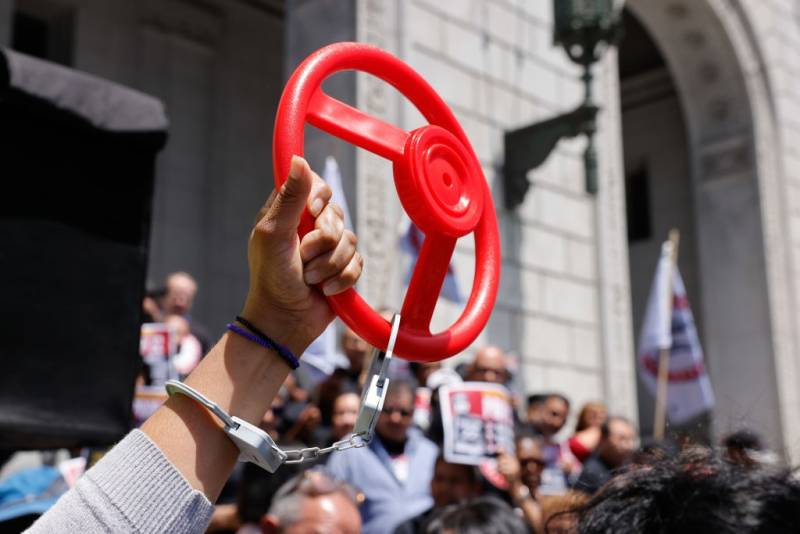The gig economy, as it has been known, was built around a controversial idea — that an Uber driver, for instance, did not work for Uber. These apps, instead, were merely making a market for workers, which a user could access to hire someone. Many labor leaders rejected this idea, and it has led to fights in the legislature, courts and over Proposition 22 in 2020, when voters handed the gig economy a huge win. The constitutionality of Prop. 22 is now before the California State Supreme Court, and we’ll go over the arguments, which the court heard this week, and discuss how gig workers have fared since it became law.
State Supreme Court to Decide Fate of Prop. 22 … and the Gig Economy

Dora Manriquez, driver, holds a steering wheel handcuffed to her wrist during a rally against Prop 22 outside the California Supreme Court in the State of California building on Tuesday, May 21, 2024 in San Francisco, Calif. (Lea Suzuki/San Francisco Chronicle/Getty Images)
Guests:
Levi Sumagaysay, economy reporter, CalMatters
Ken Jacobs , co-chair, Center for Labor Research and Education at UC Berkeley
John Mejia, rideshare driver and member of California Gig Workers Union
David Lewis, dasher, Doordash
Molly Weedn, spokesperson, Protect App-Based Drivers & Services coalition
Sponsored